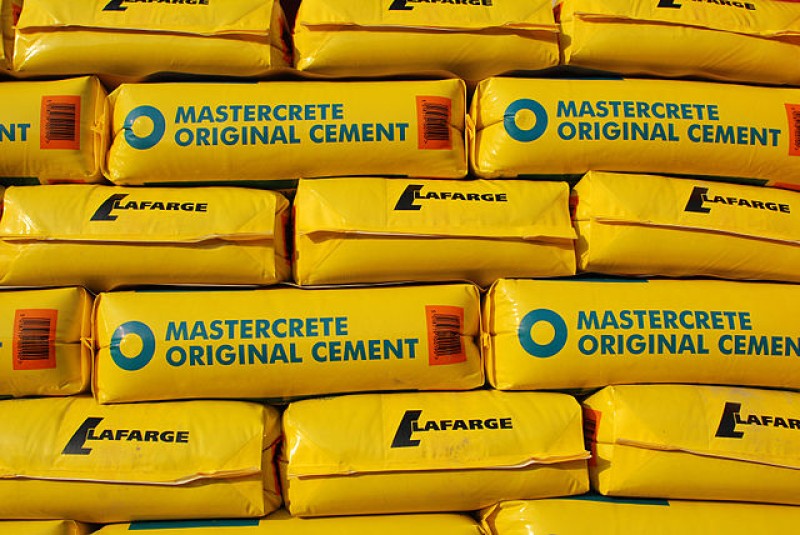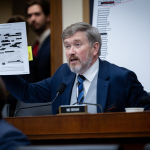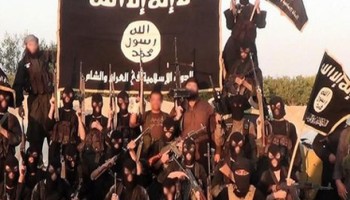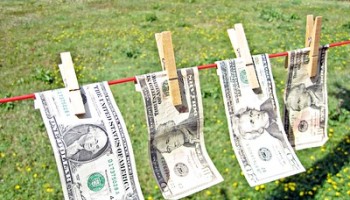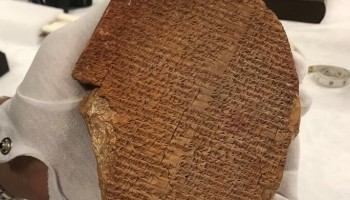The French cement company subsequently agreed to pay US$778 million in fines and forfeitures to the American government, as penance for financing ISIS and the al-Nusrah Front (ANF) via its cement plant operations in war-torn Syria.
Lafarge, a division of Holcim Group, a Swiss multinational building company, operated a cement plant in the Jalabiyeh region of northern Syria between 2010 and 2014 that had cost approximately $680 million to develop, according to the U.S. Department of Justice (DOJ).
At the outbreak of Syrian Civil War in 2011, executives at the cement manufacturing company negotiated clandestine agreements, wherein they paid armed factions to protect their employees and receive preferential treatment, out of economic self-interest.
Raw materials were purchased from ISIS-controlled suppliers and monthly taxes were paid so that, in exchange, Lafarge personnel could traverse checkpoints controlled by the armed groups around its Jalabiyeh Cement Plant.
From August 2013 to October 2014, for instance, $5.92 million was paid to terrorist groups in the form of monthly “donations”. And in September 2014, when the French company abandoned the plant, ISIS swooped in and sold the remaining cement, valued at $3.21 million.
“In the midst of a civil war, Lafarge made the unthinkable choice to put money into the hands of ISIS, one of the world’s most barbaric terrorist organizations, so that it could continue selling cement,” said U.S. Attorney Breon Peace for the Eastern District of New York.
Assistant Attorney General Matthew G. Olsen, meanwhile, noted how the funds supplied by the French cement manufacturer to ISIS and ANF allowed the world’s most notorious terrorist organizations to brutalize innocent civilians across Syria.
The amounts paid in these tributes were reportedly structured according to the quantities of cement that the company could sell, as part of a revenue-sharing agreement that encouraged the terrorist groups to act in Lavarge’s economic interests.
“Lafarge did this not merely in exchange for permission to operate its cement plant – which would have been bad enough – but also to leverage its relationship with ISIS for economic advantage, seeking ISIS’s assistance to hurt Lafarge’s competition in exchange for a cut of Lafarge’s sales,” Peace said.
The company’s executives petitioned ISIS to impose costs on its competitors who sold Turkish cement imported into northern Syria, a product that otherwise would have been cheaper than the cement produced at the Jalabiyeh Cement Plant, the DOJ noted.
This included cases where ISIS outright stopped the sale of imported Turkish cement in areas that were under the control of the terrorist group.
Part of Lafarge’s guilty plea included admissions that it falsified records and backdated contracts with its terrorist partners, as part of its clandestine arrangements to avoid accountability.
For example, company executives asked ISIS not to include the Lafarge name on any documents that would otherwise incriminate them. They also used their personal email addresses, in lieu of their corporate ones, to carry out the conspiracy, the DOJ said.
All in all, the French cement company made $70.30 million in profits from their business dealings with the terrorist groups from August 2013 through 2014.
Eric Olsen, the company’s first chief executive following the merger with Holcim, stepped down in 2017 after the payments originally came to light.
An April 2017 statement from the board concluded that Olsen “was not responsible for, nor thought to be aware of, any wrongdoings,” as part of the company’s internal review.
However, the board did acknowledge that “a number of measures taken to continue safe operations at the Syrian plant were unacceptable, and significant errors of judgement were made that contravened the applicable code of conduct.”
Lafarge has similarly had its name dragged through the mud in the French legal system, following a 2016 criminal complaint filed by the Paris-based Sherpa, a watchdog NGO that reports on corporate crime.
Following Sherpa’s 2018 submission of a legal memorandum into Lafarge’s actions, the company was charged in French court with crimes against humanity.
Anna Kiefer, the group’s advocacy and litigation director, recounted how the original ruling found the cement company guilty of financing the Islamic State, but that these actions did not represent an intent to commit crimes against humanity.
The Supreme Court, however, intervened to reverse the ruling on Lafarge’s intent, stating that its executives must’ve known that ISIS planned to use the company’s money to fund acts of terror in Syria and across the globe.
This decision, Kiefer wrote, set “a ground-breaking precedent on corporate complicity in crimes against humanity.”
As another chapter in this legal saga comes to a close, U.S. Deputy Attorney General Lisa O. Monaco remarked that the case “sends the clear message to all companies, but especially those operating in high-risk environments, to invest in robust compliance programs, pay vigilant attention to national security compliance risks, and conduct careful due diligence in mergers and acquisitions.”
“The terrorism crimes to which Lafarge and its subsidiary have pleaded guilty,” Monaco added, “are a vivid reminder of how corporate crime can intersect with national security.”
